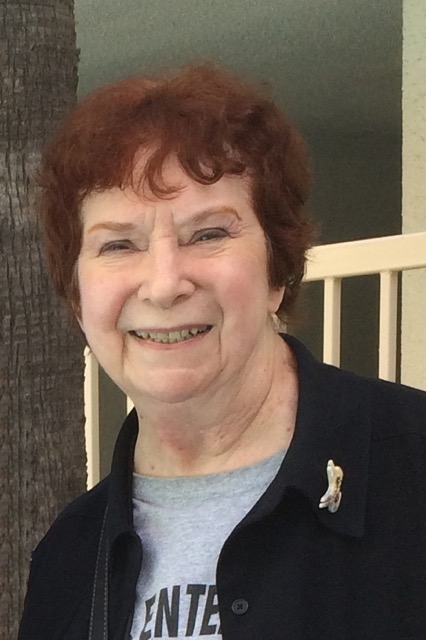She helped men go boldly where no man has gone before.
Dorothy Catherine Fontana wanted to be a novelist. She wrote horror stories with herself and her friends as characters. As an adult, she attended college, graduating with an associate degree as an executive secretarial major.
She worked in New York City, but moved to Los Angeles. While working for Samuel A. Peeples, she had her first story sale at age 21 under the name Dorothy C. Fontana. It was called, “A Bounty for Billy.” She sold six more story ideas. Then, she met him.
She was working as a secretary for Del Reisman, a producer on the ill-fated TV show “The Lieutenant.” Its creator was Gene Roddenberry. When Gene found out she wanted to be a writer, he encouraged her to become one. “Brazos River,” a western novel, was published in 1964.
When“The Lieutenant” was canceled, Gene began working on a new show called “Star Trek.” D.C. Fontana was appointed as the series’ story editor. She had been working on the show since it was in development.
Gene told her to write a teleplay on an idea he had. D.C., gave Gene the story credit for “Charlie X,” while she took the teleplay credit.
Partway through the first season, the story editor left and the second editor wanted to. Gene gave D.C., a chance of rewriting, “This Side of Paradise.” Her work was good enough and she was named story editor in September 1966.
She wrote or re-wrote episodes during the first two years of “Star Trek.” After leaving the show at the end of its second season, D.C., she wrote scripts for other shows as a freelancer, but continued to write scripts for “Star Trek.”
Leonard Nimoy praised her work, giving her credit for expanding Vulcan culture and writing believable female characters. His character, Mr. Spock, was shaped by D.C.’s writing. He would not be the beloved character he is today if it hadn’t been for the fine and nuanced writing of D.C. Fontana.
Many people thought D.C. Fontana was a man. This was intentional and probably the best way for her to get and keep work in Hollywood at the time. D.C., wrote some of the most well-remembered “Star Trek” episodes.
“This Side of Paradise,” is her favorite episode because it deals with Spock and his home planet, Vulcan.
Spock kind of spoke to me because his problematic interior. How do I be a Vulcan? How do I be a human? Oh, well, I’m going to suppress the human side. I’m going to be all Vulcan, but then that human side in ‘This Side of Paradise’ and in ‘Journey to Babel’ both come out,” she said.
She went on to write for Logan’s Run, The Six Million Dollar Man, Battlestar Galactica, Buck Rogers in the 25th Century, Babylon 5, and Earth: Final Conflict.
Her other credits included dozens of episodes of other series, like “Bonanza,” “The High Chaparral,” “Kung Fu,” “The Waltons” and “Dallas.” But her primary work was in science fiction.
She was the story editor and associate producer on “Star Trek: The Animated Series.” In 1975, it won the Daytime Emmy Award for Outstanding Children’s Series.
She co-wrote the pilot episode, “Encounter at Farpoint,” for “Star Trek: The Next Generation.” She wrote for “Star Trek: Deep Space Nine” and worked on several Star Trek Games. She also wrote an episode for the web series, “Star Trek: New Voyages.”
D.C., seemed to be involved in every science fiction television show I watched in my youth, including the short-lived and mostly forgotten, “Automan.”
Her “Star Trek” legacy stands today as some of the most interesting thoughts on the human spirit.
We were telling stories that were about human beings. Human beings in a new environment in space, new worlds, new civilizations as we say, but the simple fact is we were trying to tell stories about humanity, about people in sometimes difficult situations. How does a human being react? What is the best thing to do for these aliens that we don’t know too much about, but we think they have good qualities? We’re going to try and help them.
One of the things I always loved about “Star Trek,” and many other science fiction series is you can get away with a lot of current, social commentary and claim you were not doing that exact thing. D.C., knew this well and she knew how to write it.
I’m very proud that I wrote for Star Trek, because it gave you the opportunity to make comments on things that you couldn’t on a regular series. You could make a social comment without them saying, ‘Oh, you’re attacking so-and-so.’ In the future, you couldn’t be attacking anything, although you were.
D.C. Fontana helped us look to the stars and question who we are and who we want to be. She also made a little nine-year old girl think one day she could be a writer, too.

